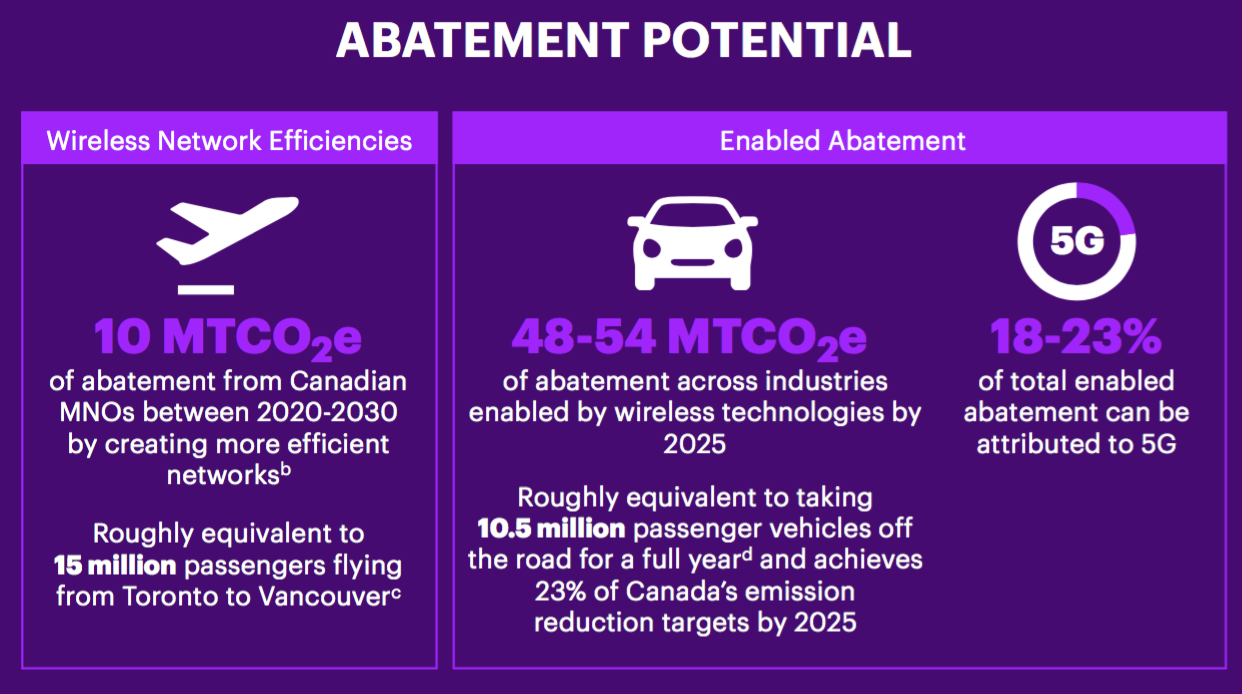
A fast and effective deployment of 5G is key to Canada’s ability to meet its climate change reduction commitment, argues a new report from Accenture.
The report was commissioned by the Canadian Wireless Telecommunications Association (CWTA), which represents companies that provide wireless products and services before all levels of government in Canada.
It argues that 5G will play a large role in reducing specific types of environmental damage and pollution, and will help lessen emissions in other industries.
The study notes that technical network advancements mean that wireless networks will function more efficiently on a per-unit-of-data level.
“Given the projected increase in data consumption by Canadian consumers without network advancements, wireless industry emissions would be forced upwards by the constantly increasing demand,” the study reads.
For a general 5G cell site, energy used in data transmission will be 8-15 percent of what it currently is for a similar 4G cell site and millimetre wave technology can further reduce energy consumption to 1-2 percent of a 4G macro site, according to the report.
“Considering 5G’s substantially greater energy efficiency, it is predicted that 5G will support a thousand-fold traffic increase in the next 10 years, while the full network’s energy consumption will be half the current levels,” the report reads.
The study notes that 5G will also be able to have an impact on several other factors like transportation. For instance, the reduction of physical business travel by deploying VR and AR technologies for conference attendees could have an impact on Canada’s total greenhouse gas emissions.
Further, the implementation of more abstract applications like improved navigation and traffic management are also expected to have a positive impact.
“Improved monitoring technologies will help to reduce potable water wastage from leaks in municipal networks, while similar applications can monitor hazardous waste or oil pipelines, ensuring that leaks are caught early,” the study outlines.
The study also states that 5G will also be important for reducing the overuse of fertilizers and pesticides that result in contamination of natural water sources.
“Realizing these environmental benefits requires a recognition by all stakeholders of the importance of 5G to Canada, and the support from federal, provincial, and municipal authorities to remove barriers to deployment of 5G and create an environment that encourages private sector investment in 5G networks,” the report concludes.
Image credit: CWTA
MobileSyrup may earn a commission from purchases made via our links, which helps fund the journalism we provide free on our website. These links do not influence our editorial content. Support us here.



